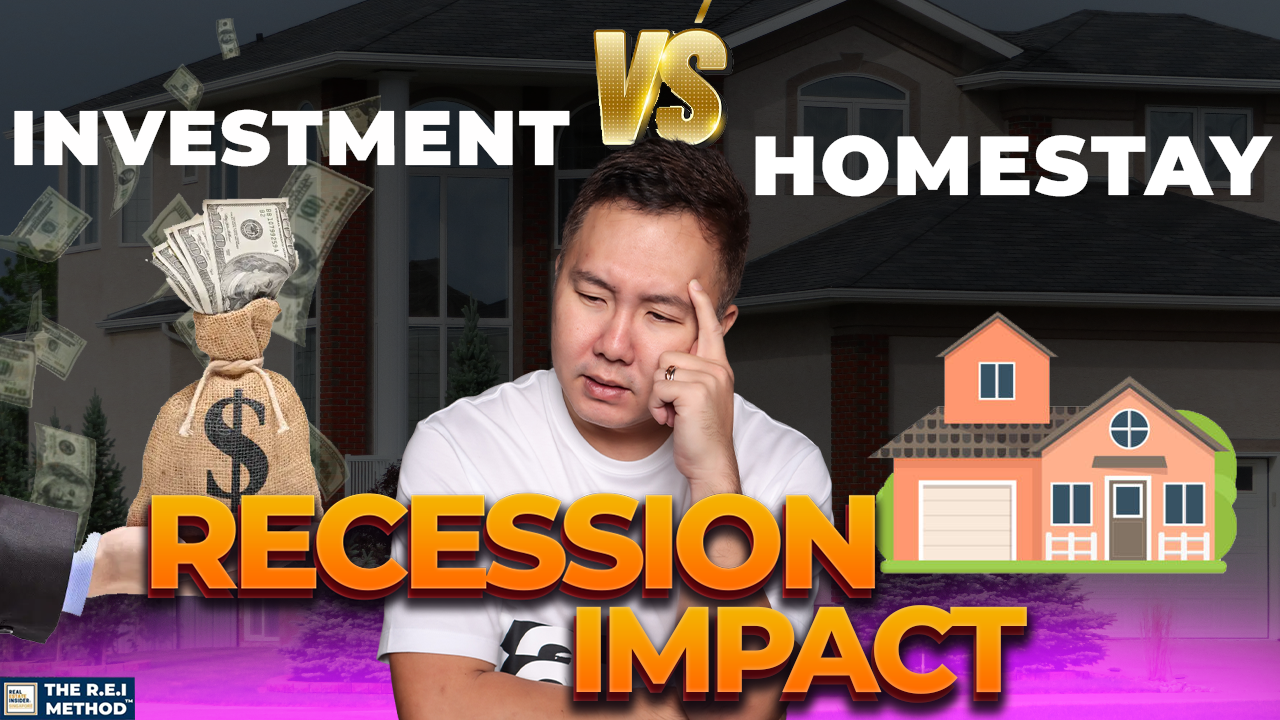In times of economic uncertainty, many people shy away from real estate investment, believing that turbulent markets make for risky decisions. However, seasoned investors know that with the right approach, downturns can present unique opportunities for growth.
If you’re thinking about stepping into real estate, now could be the perfect time to consider becoming a Homevestor — someone who builds a portfolio by strategically investing in residential properties.
This blog explores key strategies and considerations for navigating market challenges and seizing the potential that economic shifts can offer to aspiring Homevestors.
1. Understanding Market Cycles and Economic Shifts
Economic shifts impact real estate values, demand, and buyer sentiment. Before diving in, it’s crucial to understand the typical phases of the market cycle:
Expansion: Increased economic growth leads to higher demand and rising property values.
Peak: A plateau where prices stabilize but are generally high.
Contraction: Slowed growth, often marked by reduced demand, lower prices, and sometimes, a recession.
Trough: Market bottoms out, presenting opportunities to buy undervalued properties before the next expansion.
Becoming familiar with these phases allows Homevestors to anticipate trends, identify ideal entry points, and make informed investment decisions. Downturns and contractions, in particular, often provide opportunities for those looking to buy undervalued assets.
2. Taking Advantage of Buyer’s Markets
Economic downturns can create a buyer’s market, where there are more properties available than buyers. In a buyer’s market, properties often sell below their true value due to decreased demand. This environment is ripe for Homevestors who are prepared to negotiate and make offers. Here’s how to take advantage:
Seek Distressed Properties: Distressed or foreclosed properties are typically sold at a discount and can be excellent investments with the right renovations.
Negotiate Terms: With fewer buyers competing, you’re in a better position to negotiate favorable terms, including price, closing costs, and inspection contingencies.
Prioritize Value Over Aesthetics: Focus on properties with strong fundamentals, like location and structural integrity, rather than perfect interiors. Cosmetic issues can be fixed but location cannot.
3. Building a Cash Reserve for Flexibility
During economic shifts, having cash on hand is critical. Whether it’s for down payments, repairs, or to cover unexpected expenses, liquidity allows Homevestors to act quickly when good deals arise. Here’s how to build and manage your cash reserves effectively:
Set Aside for Emergency Repairs: Unexpected maintenance can derail an investment if cash flow is tight.
Plan for Potential Vacancies: Economic downturns may impact tenants, so it’s wise to have reserves in case of vacancies.
Be Prepared for Financing Hurdles: Securing loans during downturns may be challenging or involve higher interest rates, making cash reserves even more valuable.
4. Leveraging Low-Interest Environments
Central banks often lower interest rates during economic contractions to stimulate growth. For Homevestors, this creates a potential for low-cost financing that can boost profitability. Here’s how to leverage low-interest environments:
Consider Refinancing Existing Loans: If you already own property, refinancing can free up funds to invest in additional properties.
Focus on Long-term Financing Options: Lock in low rates for as long as possible, which can stabilize cash flow and make your investment more resilient.
Explore Creative Financing: Partner with private lenders or seek seller-financed deals, which may offer more flexible terms when traditional financing is limited.
5. Optimizing Your Property Management
The right property management strategy can protect and maximize returns on your investment. Here’s how to optimize during challenging times:
Minimize Vacancies: Aim to retain reliable tenants by offering competitive rates and prompt service. It’s more cost-effective to retain tenants than to cover vacancy costs.
Reduce Expenses with Preventive Maintenance: Staying on top of repairs can prevent costly emergencies and keep your property’s value high.
Evaluate Rent Pricing Strategically: During economic shifts, high rents might deter potential tenants. Competitive pricing can help ensure a steady rental income even in slow periods.
6. Choosing the Right Location
Location remains a fundamental factor in any real estate investment. During economic shifts, certain locations may show more resilience than others, so focus on the following:
Emerging Neighborhoods: Often, these areas are less impacted by downturns and can provide better returns.
Proximity to Employment Hubs: Areas near major employment centers tend to experience consistent demand, even during economic slumps.
Market Indicators for Future Growth: Research cities or neighborhoods with strong infrastructure, development projects, or increasing population trends, which can indicate long-term value appreciation.
7. Keeping a Long-term Perspective
One of the keys to success as a Homevestor is to maintain a long-term view. Short-term market fluctuations are inevitable, but real estate has historically appreciated over time. Patience, combined with a strategic, value-focused approach, can yield significant returns.
Focus on Equity Growth Over Time: As you pay down mortgages and property values recover or increase, equity grows, building your wealth.
Embrace a “Hold” Mindset: If property values dip, it’s often best to hold rather than sell at a loss. A downturn can be temporary, with long-term potential for gains.
Continue Learning: The real estate market is dynamic. Staying informed about economic indicators, market trends, and new investment strategies helps you adapt and thrive.
Final Thoughts
Becoming a Homevestor during economic shifts requires courage, research, and a strategic approach. While these times can pose challenges, they also provide unique opportunities to acquire properties that might otherwise be out of reach in a hot market.
By understanding market cycles, optimizing your property management, and focusing on long-term goals, you can turn market challenges into a path for building lasting wealth through real estate.
Are you ready to embrace the journey of becoming a Homevestor? There’s no better time than now to start planning your strategy!
